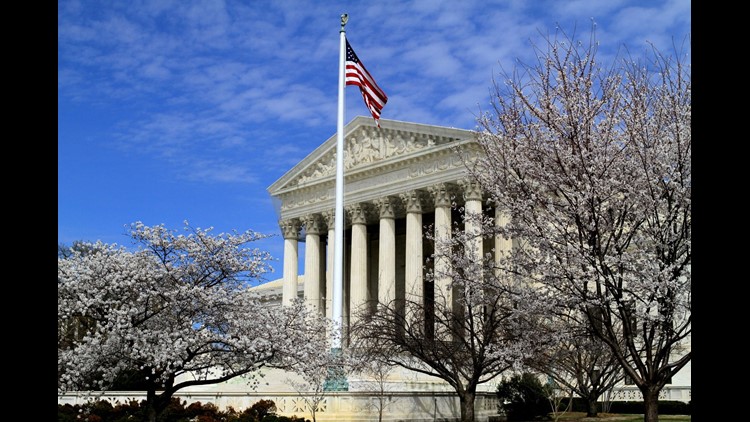The U.S. Supreme Court on Monday laid the groundwork for a significant debate on capital punishment next term, announcing it will take up two death penalty cases.
The first case granted by the court concerns Duane Buck, an African-American man on death row who was sentenced to death after his own lawyer introduced evidence that he was more likely to be dangerous in the future because he is black.
Under Texas law, a death sentence can be imposed only if prosecutors can find that the inmate poses a future danger to society. At issue was testimony from Dr. Walter Quijano, a clinical psychologist who was called as an expert witness by the defense.
In briefs, Texas Attorney General Ken Paxton emphasized the brutality of the crimes Buck was convicted of and said that his ineffectiveness claim is procedurally barred in part because the lower court reasoned that he could not establish the “extraordinary circumstances” necessary for relief.
“There is no question that state-sponsored discrimination is not to be tolerated,” Paxton wrote in the briefs, but he said that Quijano’s testimony was not the only evidence against Buck. “Certainly the record does not establish that the assessment of the death penalty in this case was a result of Dr. Quijano’s single statement that minorities are overrepresented in the criminal justice system,” he wrote.
In response to the Supreme Court taking up the case, attorneys for Buck said in a statement that his case casts a negative light on the judiciary process.
“Trial counsel’s knowing reliance on false, inflammatory and deeply prejudicial evidence explicitly linking Mr. Buck’s race to his likelihood of future dangerousness is plainly extraordinary,” the attorneys wrote. “We are hopeful that the Supreme Court will correct this egregious error, and that Texas will acknowledge Mr. Buck’s right to a new sentencing hearing free of racial bias. Justice can only be served in this extraordinary case of racial bias by a new sentencing hearing free of inflammatory, inaccurate stereotypes.”
The second case, also out of Texas, that the court granted on Monday concerns Bobby Moore, who was convicted and sentenced to death row in 1980 and has been on death row since. He is now 56 years old and was first sentenced to death over 35 years ago.
The Supreme Court originally said that it would grant two questions in Moore’s case concerning his claim of intellectual disability and the fact that he had been subject to prolonged confinement including time spent in solitary confinement.
Two and a half hours later, the Court amended its original order and said it would only hear the first question in the case concerning intellectual disability.
Lawyers for Moore argue that a lower court determined that Moore was “intellectually disabled and constitutionally ineligible” for the death penalty, but the Texas Court of Criminal Appeals reversed that decision.
Moore’s lawyers say that the appeals court used an “outdated” definition of intellectual disability that they say “sharply conflicts” with Supreme Court precedent.
“This Court’s review is necessary to ensure the continued vitality of a bedrock constitutional requirement,” Clifford M. Sloan argued in court papers, saying that the lower court “eschewed this core principle in favor of applying an outdated definition” that he said conflicts with the prevailing medical consensus.
In response, Texas Attorney General Ken Paxton said that the Supreme Court “specifically left to the individual states the task of developing appropriate ways to enforce the constitutional restricting against executing intellectually disabled offenders.” Paxton said that the standard used by the lower court is “consistent” with the Supreme Court’s opinions.
The Court’s amended order reflects the fact that at least for now it is not ready to take up the issue of solitary confinement, despite the fact that Justice Anthony Kennedy has urged the court to do so.
In a previous case, Davis v. Ayala, Kennedy wrote that the courts may have to grapple with the issue.
“In a case that presented the issue, the judiciary may be required … to determine whether workable alternative systems for long-term confinement exist, and, if so, whether a correctional system should be required to adopt them,” the justice wrote in that opinion.
That issue will have to wait for another day.
Although neither case challenges the constitutionality of the death penalty itself, the case comes as two justices, Stephen Breyer and Ruth Bader Ginsburg, have suggested the court take a look at that issue.



